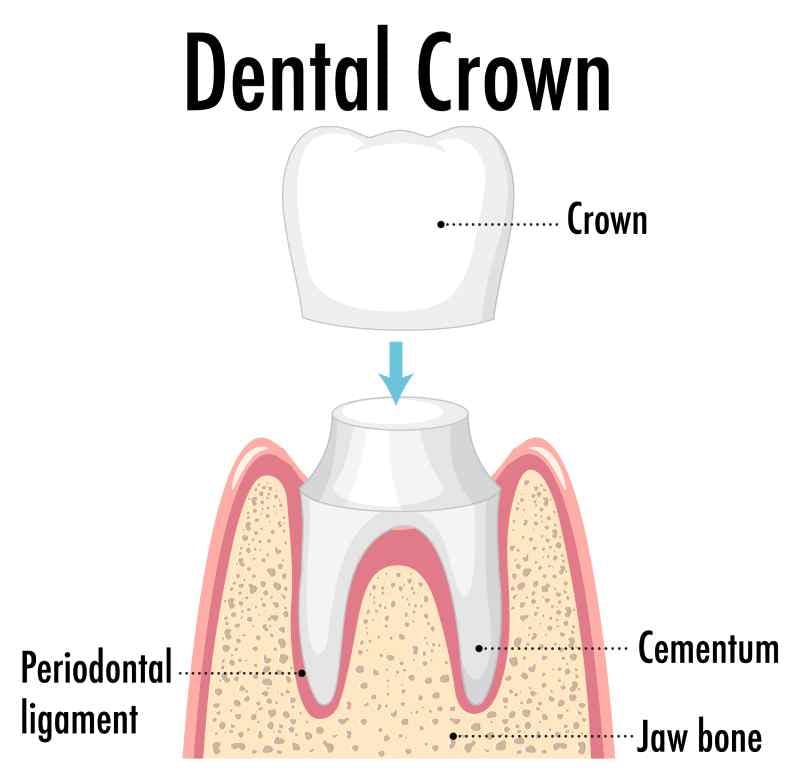Dental Crowns Kanata

Understanding Dental Crowns: Restoring Teeth's Form and Function

A dental crown, also known as a tooth cap, is a protective cover placed by a dentist over a damaged or compromised tooth to restore its shape, size, strength, and appearance.
Dental crowns are used to address various dental issues, including:
- Cosmetic restoration to enhance teeth alignment and appearance.
- As a finishing touch for dental implants.
- Repairing teeth with extensive cavities or damage, replacing old metal fillings.
- Concealing severely discolored or misshapen teeth.
- Providing support for dental bridges.
- Stabilizing and protecting fractured or severely damaged teeth.
- Covering worn-down teeth, often due to teeth grinding (bruxism), with the recommendation of a mouthguard to prevent further damage.
- Closing gaps between teeth for a more even dental structure.
- Supporting hollowed-out teeth following a root canal to prevent fractures.
Contact us today for a consultation and expert guidance on how crowns can restore your smile and oral health. Achieve a healthier, more beautiful smile with us.
Dental crowns come in different materials, including porcelain or ceramic (for a natural look), stainless steel (for temporary use, often in children), a combination of metal and porcelain (offering strength and aesthetics), metallic (suitable for molars), and resin (an economical option). The choice of material depends on clinical considerations and patient preferences.
The dental crown procedure involves several steps:
- Examination: Assessing the tooth's condition, including checking for decay and the integrity of the surrounding bone. In some cases, a root canal may be necessary.
- Manufacturing: Crowns are custom-made in a dental lab, often taking two to three weeks. The color and texture are matched to the patient's natural teeth.
- Preparation: Numbing the affected area, trimming the tooth to accommodate the crown, and, if necessary, adding a filling to restore the tooth's structure.
- Impressions: Taking impressions of the tooth and jaws to ensure a proper fit and bite alignment.
- Installation: Placing the crown using special cement and making any necessary adjustments for comfort and functionality.
Caring for a temporary crown involves avoiding hard or sticky foods and being cautious while flossing. For permanent crowns, maintaining good oral hygiene, using a mouthguard if necessary, and avoiding habits that can damage teeth are essential. Regular dental checkups help monitor the condition of the crowns and ensure long-term dental health.
We will gladly answer any questions you may have.
Ask QuestionsKanata South Dental offers the ability to request your dentist appointments online. Schedule an appointment now!
Book OnlineBy filling out the New Patient Forms ahead of time you will save significant time on your visit.
New Patient FormsLatest News
Key Benefits of Dental Cleaning
Fri, 9 Jan 2026Key Benefits of Dental Cleaning (And What Happens If You Skip Them) Regular dental cleanings play an important role in keeping yo...
Continue Reading